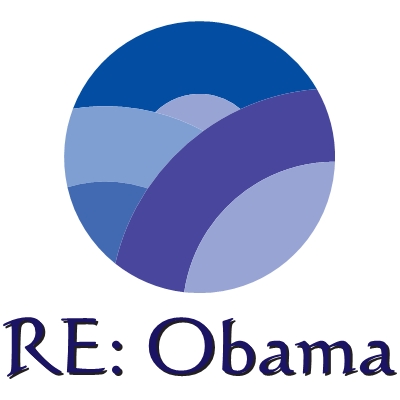“This Strategy is organized around a single, unifying principle: to build, balance, and integrate the tools of American power to combat transnational organized crime and related threats to our national security—and to urge our partners to do the same… While this Strategy is intended to assist the United States Government in combating transnational crime, it also serves as an invitation for enhanced international cooperation. We encourage our partners and allies to echo the commitment we have made here and join in building a new framework for international cooperation to protect all our citizens from the violence, harm, and exploitation wrought by transnational organized crime.”
— President Barack Obama
Strategy to Combat Transnational Organized Crime
In the U.S. National Security Strategy, the President committed his Administration to the pursuit of four enduring national interests: security, prosperity, respect for universal values, and the shaping of an international order that can meet the challenges of the 21st century. The expanding size, scope, and influence of transnational organized crime (TOC) and its impact on U.S. and international security and governance represent one of the most significant of those challenges.
Transnational Organized Crime Threatens U.S. and International Security
In January 2010, the United States completed a comprehensive assessment of transnational organized crime – the first such assessment since 1995. The assessment concluded that TOC networks are proliferating, striking new and powerful alliances, and engaging in a range of illicit activities as never before. The result is a convergence of threats that have evolved to become more complex, volatile, and destabilizing.
- TOC penetration of states is deepening, leading to co-option in some states and weakening of governance in many others. TOC networks insinuate themselves into the political process through bribery and in some cases have become alternate providers of governance, security, and livelihoods to win popular support. The nexus in some states among TOC groups and elements of government – including intelligence services personnel – and big business figures threatens the rule of law.
- TOC threatens U.S. economic interests and can cause significant damage to world financial system by subverting legitimate markets. The World Bank estimates that about $1 trillion is spent each year to bribe public officials. TOC groups, through their state relationships, could gain influence over strategic markets.
- Terrorists and insurgents increasingly are turning to crime and criminal networks for funding and logistics. In FY 2010, 29 of the 63 top drug trafficking organizations identified by the Department of Justice had links to terrorist organizations. While many terrorist links to TOC are opportunistic, this nexus is dangerous, especially if it leads a TOC network to facilitate the transfer of weapons of mass destruction material to terrorists.
- Some well-established organized criminal groups that have not previously been involved in producing narcotics are now seeking to develop their own distribution and trafficking networks.
- Human smuggling and trafficking-in-person networks are growing more violent and lucrative, and exploiting the most vulnerable, especially women and children.
- TOC networks are stealing U.S. intellectual property. Between FY 2003 and FY 2010, the yearly domestic value of customs seizures at U.S. port and mail facilities related to intellectual property right violations leaped from $94 million to $188 million
- TOC networks are increasingly involved in cybercrime, which costs consumers billions of dollars annually, threatens corporate and government computer networks, and undermines worldwide confidence in the global financial system.
- Often connecting these transnational threats are “facilitators,” who operate in both the licit and illicit worlds and provide services to criminals and terrorists.
Strategy to Combat Transnational Organized Crime
- The Strategy has five strategic objectives:
1. Protect Americans and our partners from the harm, violence, and exploitation of transnational criminal networks.
2. Help partner countries strengthen governance and transparency, break the corruptive power of transnational criminal networks, and sever state-crime alliances.
3. Break the economic power of transnational criminal networks and protect strategic markets and the U.S. financial system from TOC penetration and abuse.
4. Defeat transnational criminal networks that pose the greatest threat to national security by targeting their infrastructures, depriving them of their enabling means, and preventing the criminal facilitation of terrorist activities.
5. Build international consensus, multilateral cooperation, and public-private partnerships to defeat transnational organized crime.
- There are 56 priority actions in the Strategy under the following chapters:
1. Start at Home: Taking Shared Responsibility for Transnational Organized Crime;
2. Enhance Intelligence and Information Sharing;
3. Protect the Financial System and Strategic Markets against Transnational Organized Crime;
4. Strengthen Interdiction, Investigations, and Prosecutions;
5. Disrupt Drug Trafficking and its Facilitation of Other Transnational Threats; and
6. Build International Capacity, Cooperation, and Partnerships.
- By prioritizing existing resources, the Strategy also introduces the following new and innovative capabilities and tools:
1. A new Executive Order will establish a sanctions program to block the property of significant transnational criminal organizations that threaten the national security, foreign policy, or economy of the United States.
2. A series of legislative proposals to enhance the authorities available to investigate, interdict, and prosecute the activities of top transnational criminal networks. Collectively, the Administration’s proposals reinvigorate the statutory landscape to be more responsive to extraterritorial threats and the increasingly global reach of criminal syndicates.
3. A new Presidential Proclamation under the U.S. Immigration and Nationality Act will bar admission to the United States of persons designated under the Executive Order and other comparable sanctions programs. The Proclamation also provides additional legal authority for barring admission to the United States of persons subject to United Nations Security Council travel bans.
4. A new rewards program will supplement the success of existing narcotics rewards programs in obtaining information that leads to the arrest and conviction of the leaders of transnational criminal organizations that pose the greatest threats to national security.
- The Interagency Policy Committee on Illicit Drugs and Transnational Criminal Threats, led by the National Security Staff and the Office of National Drug Control Policy, will oversee implementation of the Strategy.



